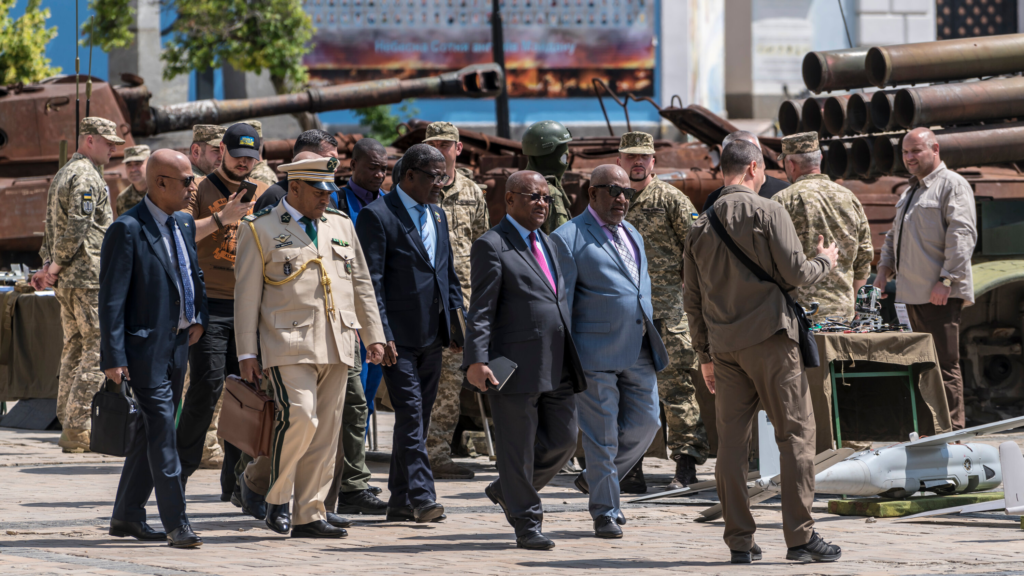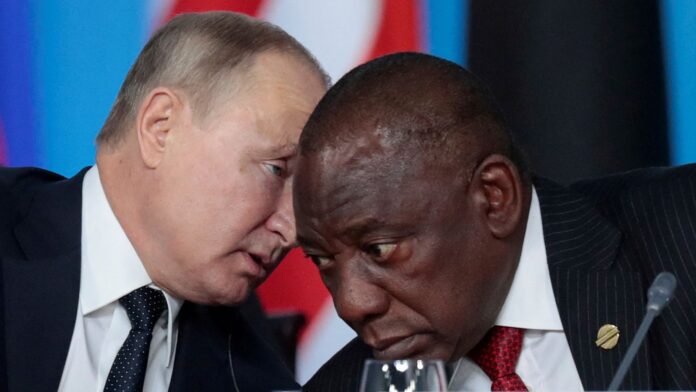In a delicate geopolitical tango, South Africa finds itself caught between international obligations and potential repercussions as the world watches with bated breath. The looming visit of Russian President Vladimir Putin to Johannesburg for a high-profile summit of Brics countries has ignited a firestorm of controversy, and President Cyril Ramaphosa faces a challenging decision that could have far-reaching consequences.
At the heart of the matter lies an International Criminal Court (ICC) arrest warrant against Putin, accusing him of war crimes during the Ukraine conflict. While South Africa is an ICC signatory, it has refrained from apprehending foreign leaders in the past, most notably when it allowed safe passage to Sudan’s former President Omar al-Bashir in 2015, despite being wanted for war crimes.
The looming summit, comprising Brazil, Russia, India, China, and South Africa, presents a unique diplomatic stage where economic partnerships and geopolitical alliances intersect. It is an alternative to the G7 group, representing fast-growing economies seeking a stronger global presence.
The opposition Democratic Alliance has challenged the South African government to enforce the ICC arrest warrant, but President Ramaphosa is acutely aware of the potential consequences. He warns that any attempt to arrest Putin could trigger a severe backlash from Russia, escalating into a declaration of war against South Africa.
However, the situation is not solely a tug-of-war between upholding international justice and avoiding a diplomatic crisis. South Africa, along with other African nations, is actively engaging in diplomatic efforts to end the Ukraine conflict. African presidents have embarked on peace missions, trying to facilitate dialogue between Russia and Ukraine, with cautious optimism. The delicate balance between seeking a peaceful resolution and honoring international obligations is at the heart of Ramaphosa’s dilemma.

The complexity of the matter extends beyond geopolitics, with historical ties, economic interests, and security concerns playing pivotal roles. Many African nations have hesitated to condemn Russia’s actions in Ukraine, influenced by historical affiliations and present-day dependencies. For instance, South Africa’s anti-apartheid connections with the Soviet Union have left lasting impressions, while Mali relies on Russian Wagner mercenaries to combat jihadist threats.
Economic ties between Russia and African nations further complicate matters. In South Africa, a sanctioned Russian oligarch is believed to be a significant donor to the ruling African National Congress (ANC). These ties blur the lines between political decisions and economic interests, adding another layer of intricacy to the situation.
As the international meeting in Johannesburg draws nearer, the world watches attentively, understanding that the decisions made could have profound implications for global diplomacy and security. South Africa stands at a crossroads, torn between adhering to its obligations as an ICC signatory and safeguarding national security and diplomatic relations.
In the coming weeks, the eyes of the world will be on President Ramaphosa and the South African government as they navigate through this diplomatic tightrope. The choices made will shape the dynamics of international relations and the delicate dance between justice and diplomacy. Whether it will lead to a show of strength or a graceful compromise remains to be seen, but one thing is certain: the stakes are higher than ever before.





